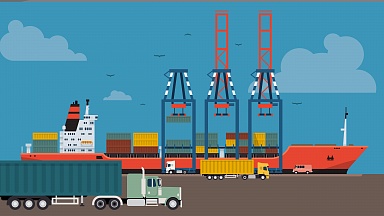Following recent innovations, the transport sector relies increasingly on the exchange of large amounts of personal and non-personal data between multiple actors. These innovations include the development of vehicles’ automated functions, connected vehicles, smart cities and digital mobility platforms. These solutions have led to an increase in data generation with transport operators typically generating data and technology companies processing and using these data.
Voluntary provision
In a joint statement sent to EU decision makers (accessible below), associations representing the freight and passenger transport sectors, call for the establishment of an EU framework on the governance of B2B data. The framework should explicitly include the principle of voluntary provision of data and clarify the roles and responsibilities of data aggregators and the rights of data generators. The EU should also provide a guidance to standardise data formats and facilitate the interoperability of mobility platforms.
The impact of digitalisation on businesses should not be underestimated, especially in the case of SMEs. For a successful digital transformation, businesses need to upskill their workforce and will require financial support if they are to benefit from the opportunities of the data economy.
Cooperation
The transport sector stands ready to cooperate with EU institutions on digitalisation issues to ensure equal opportunities for all business partners in the digital economy through fair and transparent EU regulation.
CER Executive Director Libor Lochman said: «Rail continues its work, together with other transport associations, in developing digital solutions towards multimodality and interoperability for both passenger and freight transport. Today’s statement underlines the transport sector’s commitment to work jointly towards the development of a transparent governance structure for fair access to B2B data.»



